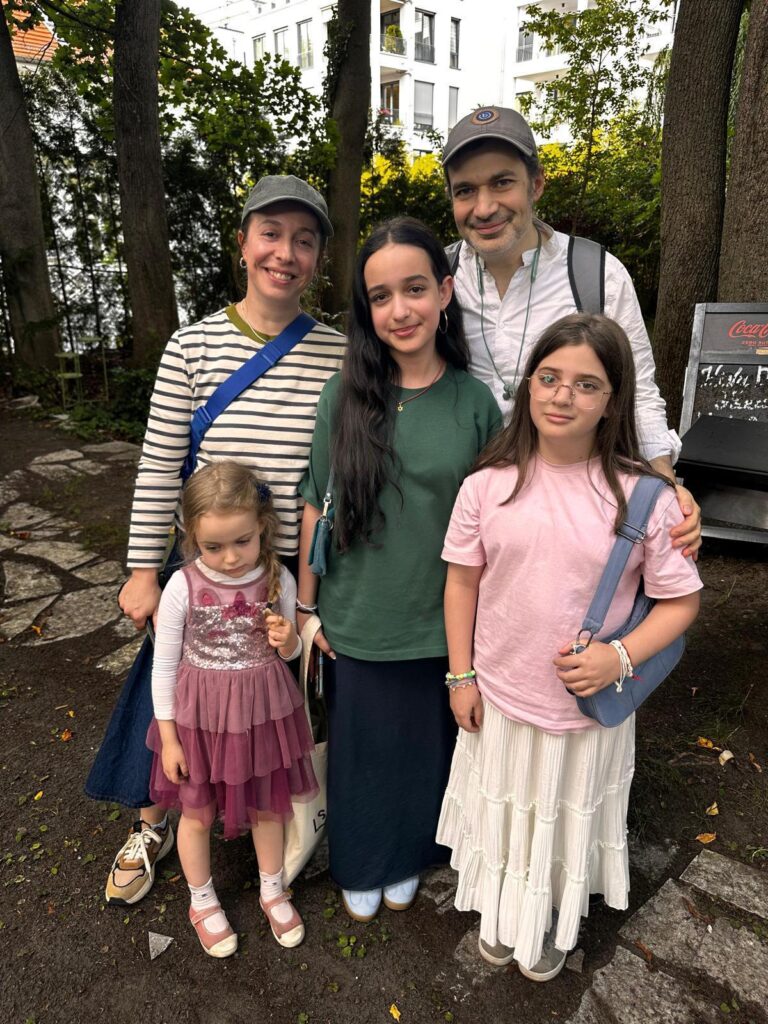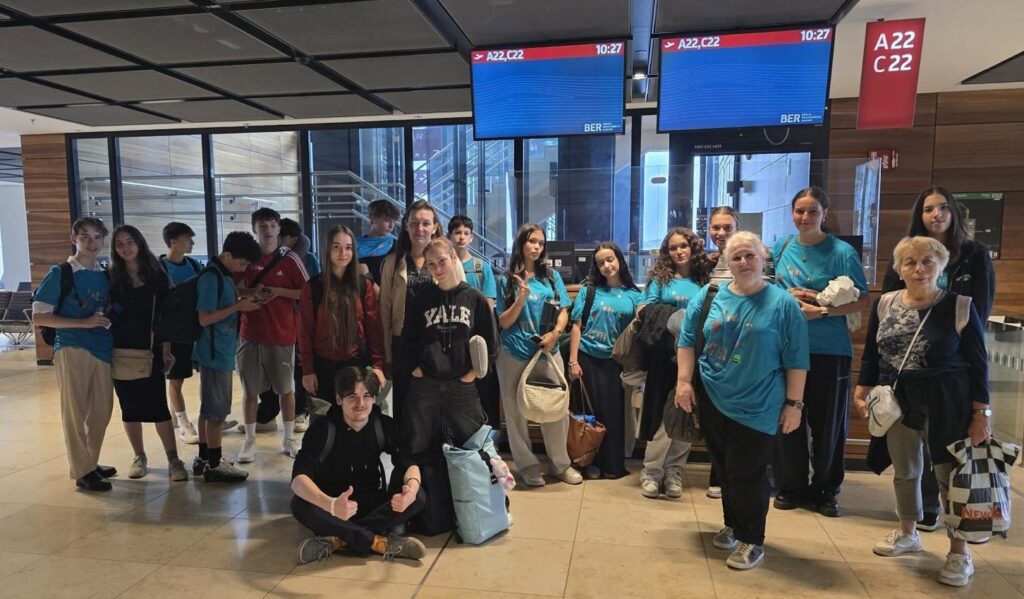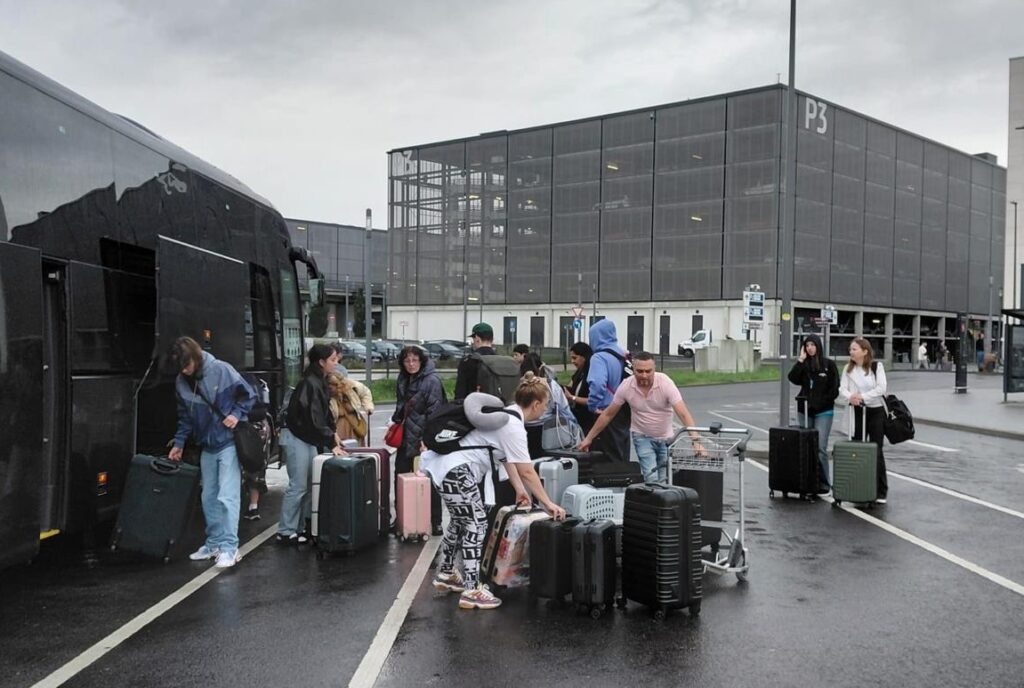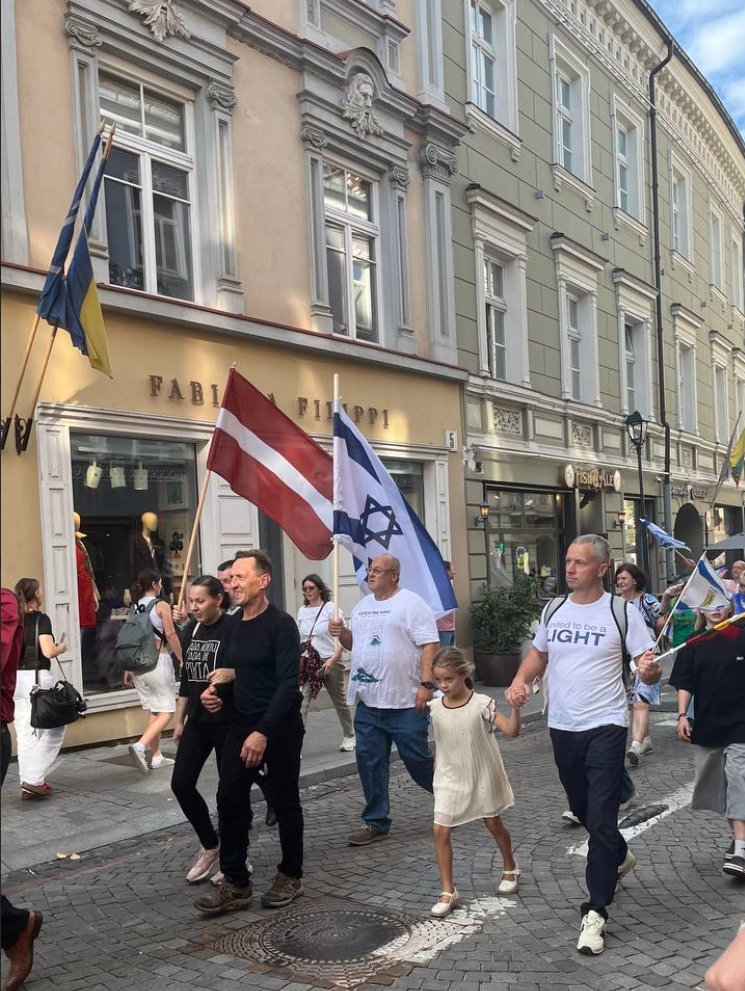
Aliyah from the West Is Rising
By: Howard Flower, ICEJ Aliyah Director
Recently, in a modern conference room in Vilnius, the capital city of Lithuania, 86 Russian-speaking Jews from across Europe gathered for an intensive Aliyah seminar organized by the Jewish Agency for Israel (JAFI), ICEJ’s long-time Aliyah partner.
“Jerusalem of the North”

The location carried profound significance. This city, once known as the “Jerusalem of the North,” was home to the great Gaon of Vilna, who revolutionized Jewish thought about returning to Zion. Nearly three centuries later, his vision was coming to life in the most practical way possible.
The Gaon, that towering eighteenth-century Talmudic genius, taught something radical for his time: that Jews shouldn’t wait passively for divine intervention but should actively begin their return to the Land of Israel. His concept of Atchalta De’Geulah—the beginning of redemption—insisted that human action from below would trigger divine response from above. Today, as antisemitism surges across Europe and Jewish families pack their belongings for Israel, this miracle is manifesting before our eyes.
A Microcosm of Western Jewry
The participants in the Vilnius seminar represented a microcosm of Western Jewry’s current reality. Among them were families from Germany, where Jews increasingly feel like “tourist attractions” in their birth country, as young Alon Kogan from Offenbach described before making Aliyah. There were participants from Latvia and Lithuania, where Jewish communities that once thrived now struggle with dwindling numbers. Ukrainian Jews displaced by war sat alongside Finnish and Estonian families, all united by a common decision: it was time to go home.
The four-day program moved powerfully between remembrance and action, between honoring the past and building the future. One evening, participants created a memorial display—two white tapers surrounded by dozens of tea lights—a moment of solemn reflection for the communities destroyed during the Holocaust. The next morning, young people in matching gray athletic wear led the entire group through team-building exercises, their energy and optimism filling the room. This is the duality of modern Aliyah: remembering why Jews must never be vulnerable again while actively building the solution.


Aliyah Since October 7, 2023
The numbers tell an urgent story. Since October 7, 2023, over 60,000 Aliyah files have been opened. In France alone, where ICEJ has worked since 2010, there’s a 53 percent increase in immigration to Israel this year. Surveys indicate that 38 percent of French Jews—approximately 200,000 people—are now considering making the move. Behind each statistic is a family, like Alison’s from Marseille, who explained: “I wanted to raise my future children in a place where they could be proud of their Jewish identity without fear.”
For over two decades, ICEJ has been building the infrastructure to support this modern exodus. The Naale program helps teenagers complete their high school education in Israel, with 90 percent choosing to stay permanently. Talia, a Frankfurt student, captured its significance perfectly: “My grandparents hid their Judaism in Ukraine. My parents rediscovered it in Germany. Now, I get to live it fully in Israel.”

The Baltic States
In the Baltic states, ICEJ’s seasonal camps have reached over 1,000 young Jews, introducing them not just to Israeli culture but to practical pathways for making Aliyah. Since late 2022, the organization has sponsored flights for 250 olim (immigrants) directly from this region. Each flight represents families choosing hope over fear, future over uncertainty.
The public solidarity march through Vilnius’s historic streets, with participants carrying Israeli and Latvian flags, demonstrated something crucial: this movement isn’t happening in isolation. When families with young children joined elderly community members in that march, when participants wore shirts declaring their readiness to fight against antisemitism, they made a statement that echoes far beyond those cobblestone streets in Lithuania.
Yet for all these efforts, an unprecedented challenge looms. Jewish Agency chairman Doron Almog predicts Israel may welcome one million new immigrants in the coming years. The infrastructure needs—from flights to absorption programs to youth camps—are staggering. The ICEJ currently assists approximately 12 percent of all olim, but the need grows.
Conclusion
This is where partnership becomes essential. Every flight sponsored costs on average $1,000. Each youth camp requires funds for transportation. The preparatory seminars that give families practical and spiritual tools for successful integration need sustained support. Contributing to this mission means more than funding logistics; it means participating in an historical movement that the Gaon of Vilna envisioned three centuries ago.
Join the ICEJ in helping to support Aliyah flights, youth camps, integration programs, and more.
Related Articles
The Beta Israel Community: A New Wave of Aliyah to Israel
How Aliyah Is God’s Witness to the World


